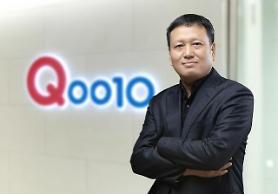
SEOUL, August 12 (AJU PRESS) - The negative reaction to the recent entry of Chinese companies into the e-commerce market raises a big question seldom asked in Korea that goes to the heart of an economic system based on choice and freedom. What comes first in a capitalist country – protecting competitors or the rights of consumers? Put another way, should a government protect competition or competitors?
Chinese players entered the market last year just as the long-time Korean companies were finally becoming profitable. Their competitive service has caused Korean operators to struggle. The TMON Inc. and WeMakePrice platforms, for example, are in serious financial trouble.
But when we watch or read about this market situation in the media, we find a bias that would strike us as strange if it were not so familiar. It comes from the fact that the Korean government and major media have a producer-centric rather than a consumer-centric approach.
Given that Korea is a democracy, the main story should be why so many consumers are rushing to register with the newcomers. After all, a major reason Korean companies are struggling right now is because of choices being made by Korean consumers.
Instead, however, the news is framed in terms of the threat to Korean producers. In this context, the “producer” is not simply the company's shareholders and/or management. It also includes labor.
Stories analyze the impact on the Korean companies and talk about the strategy of Chinese companies in a way that insinuates that the foreigners are somehow damaging Korea itself and are probably cheating or have some kind of unfair advantage.
The pernicious impact of this type of reporting is that it pressures regulators to interfere in the market and “do something.”
This is a well-trodden path. In almost every sector where foreign companies have entered and challenged established Korean companies, we can hear the same scary music in the background as if Korea is under attack. It does not take regulators long to respond to perceived public sentiment. The classic way is to announce an investigation. Or they wave pieces of paper, saying they have signed agreements with the foreigners.
In the well-known case of Uber, which entered Korea over 10 years ago, the foreign company had to freeze its business while it was investigated. In the meantime, the government encouraged Kakao to copy its model and grab the market share. That was the end of Uber.
This type of thing happens without anyone really thinking it is wrong because Korea has systems and attitudes geared toward the producer over the consumer.
The roots of this way of thinking lie in Korea’s success. The strategy for the Miracle on the Han was exports. In those days, the consumers who the government and the chaebol cared about were Mr. and Mrs. Smith in America. Nobody cared about Mr. and Mrs. Kim in Korea, who were made to feel their consuming preferences were “selfish” and that the unselfish national interest was that Samsung, Hyundai, LG and the others do well.
As a result, so-called consumer groups in this country promoted the national economy in a way that favored the producer. Not only were they uninterested in Korean consumers, but they actively worked against them. They still do.
For example, a few years ago, when small mom-and-pop stores protested against Costco, Home Plus and other hypermarkets, and the government came up with a weird compromise of asking them to only open on two Sundays every month, only one consumer group disagreed (and it no longer exists). All the others thought the consumer preference for convenient shopping on Sundays in large stores was unimportant.
Now we have a new generation of consumers. The question is whether their interests are more important than the interests of the producers. Should the government protect competitors from competition or protect consumers having the right to choose for themselves?
A Gallup survey in June found that the most regular users of one of the Chinese companies are in their 20s (46%) and single-person households (41%). And what is it that attracts them? Competitive pricing (76%). We may assume this is the pattern for users of other e-commerce platforms.
The Chinese platforms' ability to offer goods at low prices is due to their direct-from-factory model, which eliminates unnecessary markups and costs.
Sure, that is threatening to their competitors. But that is their problem to solve. That is the risk and potential reward of being a producer offering products and services to free citizens who are free to choose or not choose them.
The government and media should prioritize the protection of competition, not specific competitors. By doing so, consumers are empowered, and producers are chosen by individual citizens, not by government intervention or interference in the marketplace.
-------------------------------------------------------------------------------------------------------------------------
This article was contributed by Casey Lartigue Jr., the chairman and co-founder of Freedom Speakers International and co-author with Han Song-mi of the book Greenlight to Freedom. He is a former analyst with the Cato Institute in Washington, D.C.
Copyright ⓒ Aju Press All rights reserved.




